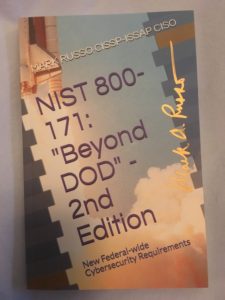Cybersecurity “Stress”

Even cybersecurity professionals struggle everyday with the lack of support and derision of the profession
Recently, an article was released about the new threat to cybersecurity… workforce stress (Giles, 2018). I think it’s about time. My second job in cybersecurity, I was assigned as the Information System Security Officer (ISSO) for a program that did not have an ISSO for the previous two years. I had government regulations to enforce and as I started to require people to lock their screens (and checked to make sure they did) as well as enforcing other requirements, their dislike of me grew. At one time, I walked into the kitchen where people were talking – and they all stopped and just stared at me until I left. I was ostracized and isolated. I developed ulcers. It was incredibly stressful. And that was a minor role in the pantheon of cybersecurity positions!
Cybersecurity is the “cop” of the IT world. And no one likes the enforcer. In addition to implementing controls and verifying compliance, cybersecurity personnel are also on the front line of incidents and often the receiving end of a litany of complaints about how security negatively affects the mission/workforce. Add to that the increasing stress due to the knowledge of fairly hefty financial fines for non-compliance in some sectors. Don’t forget the public embarrassment that occurs if all the best efforts fail and a breach is successful. Not to mention that burnout may lead to illness, which leads to time away from work… now pushing more stress on other already burned out employees who are at work and have to pick up the slack from a sick coworker (Giles, 2018).
History…
Now there are thousands of Kevin Mitnicks out there!!!
Plus, if you haven’t heard, cybersecurity is understaffed – critically. “51 percent of organizations report having a ‘problematic shortage’ of cybersecurity skills in 2018. This is up from 45 percent in 2017.” (Ditsik, 2018). So, not only are teams struggling with burnout and stress, they are overburdened from Day 1 due to lack of resources (Ditsik, 2018). While this presents great opportunities for those who want to get into the field, it’s another source of stress for those already working in it. Stress can causes employees to leave, causing loss of institutional knowledge (Kerner, 2018). And even more stress is heaped on because many cybersecurity practitioners are on the clock 24/7, as more advances are made by the hackers, more attacks are successful.
Cybersecurity practitioners struggle to keep up with incidents. And the stakes are getting higher, from small companies and business to critical infrastructure services like power plants and nuclear reactors all being targeted (Giles, 2018).
PureVPN
Special offer for Cybersentinel Visitors
New technologies like automation and artificial intelligence (AI) may reduce stress in the future, for cybersecurity practitioners as those technologies can ease the burden of sifting through information and configurations. But that’s in the future, not yet today (Giles, 2018).
Get The Best VPN Service with the awesome 70% OFF
Giles (2018), talks about how burnout, depression, and suicide are on the agenda at Blackhat. NSA conducted a study that “…looked at three primary factors across its tactical operators in an attempt to measure the impact of stress—fatigue, frustration and cognitive workload.” (Kerner, 2018). The results weren’t a surprise.
It’s well known that the IT personnel (HelpDesk, especially) suffer from high levels of stress and burnout. It’s a refreshing change to see that it is also being recognized in cybersecurity.

References
Ditsik, J. (2018). Cybersecurity job fatigue affects many security professionals. Retrieved from: https://www.csoonline.com/article/3253627/leadership-management/cybersecurity-job-fatigue-affects-many-security-professionals.html
Giles, M. (2018). Cybersecurity’s Insidious New Threat: workforce stress. Retrieved from: https://www.technologyreview.com/s/611727/cybersecuritys-insidious-new-threat-workforce-stress/
Kerner, S. (2018). NSA Research Looks at How Stress Impacts Cyber-Security Operations. Retrieved from: https://www.eweek.com/security/nsa-research-looks-at-how-stress-impacts-cyber-security-operations

Dr. Susan Cole is a 2008 graduate of the University of Fairfax with a PhD in Information Assurance (Cybersecurity). She received her MBA from Salem International University (2007), her MA from American University in International Politics (1995), a BA from Wilson College in Foreign Languages (1994) and an AA in Mandarin Chinese (1997). For her PhD, she studied what influences the decision making process for IT and Cybersecurity managers in their recommendations to adopt and implement new security technology in their organizations. The specific technology she researched was Biometrics. She has achieved and maintains certification as both a Certified Information System Security Professional (CISSP) and a Certified Ethical Hacker (CEH). She also obtained her Certificate of Cloud Security Knowledge (CCSK). She’s held numerous positions from Cybersecurity Policy writer for an enterprise to a member of an Incident Response Team. Much of her career has focused on certification and accreditation (C&A) activities, now assessment and authorization (A&A) under NIST’s Risk Management Framework. She provided consulting support to small companies and now works as an Information System Security Officer (ISSO). Dr. Cole has been teaching since 2012 and has been involved with Colorado Technical University (CTU), Concordia University, Baker College, University of Maryland (UMUC), and Thomas Edison State University (TESU).










